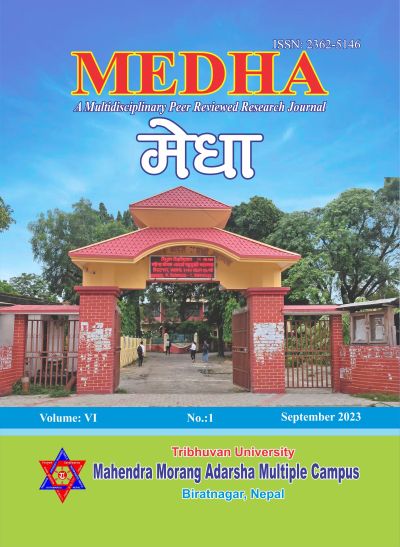Need of Demonetization to wash away the Black Money of the Corrupt People and Market: A Review of the Lesson from India
DOI:
https://doi.org/10.3126/medha.v6i1.63955Keywords:
Demonetisation, global market, corruption, black money, human developmentAbstract
This research paper presents corruption and demonetization with respect to some impacts on people, production and market. The research question to be answered is" Why was demonetization of Rs. 500 and 1000 notes in India and Nepal needed? The methodology is qualitative and related to interaction with people and document analysis. Demonetization is the process of stripping units of currency from their legal status. After demonetization, those units of currencies will not be used as before. It means their age will be passed away. The units of currencies will have no any existence. If someone circulates these units of currencies after demonetization, it will be a matter of fraud or doing illegal activity and the person will be the subject of deserving candidate for legal action and punishment for blackmailing government and people. Narendra Modi's midnight announcement of the legal proceeding of demonetization of the notes of Rs 500 and 1000 made the silently sleeping citizens wake up around the thunderstorm without cloud and amidst many sink holes without landslides. Millions of corrupted people counting their dreamful beautiful golden notes turned amongst heavy and scaring ghosts haunting around them. This situation was nearly compared to the philosophy of Nietzsche's "Death of God". It is because blackmailed money is the form of God for the blackmailers. The silent sound turned into the unending shape of murderer. It was one of the greatest decisions made by The Prime Minister of India, Narendra Modi, in the history of India and other territories in the proximity of India. In the overall situation, it was a feeling of patriotic ideology in controlling black money in India, Nepal and Bhutan.
Downloads
Downloads
Published
How to Cite
Issue
Section
License
This license enables reusers to distribute, remix, adapt, and build upon the material in any medium or format for noncommercial purposes only, and only so long as attribution is given to the creator.




